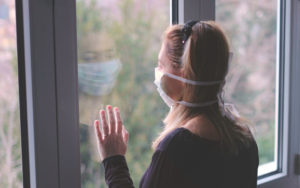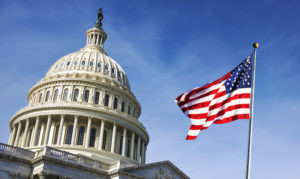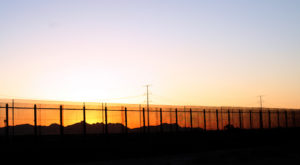
The Supreme Court holds that the Supremacy Clause does not protect the President from a state criminal subpoena, the Student and Exchange Visitor Program restricts student visas, and much more…
IN THE NEWS
- The U.S. Supreme Court held that the Supremacy Clause of the U.S. Constitution may not protect President Donald J. Trump from a state criminal subpoena issued by Manhattan District Attorney Cyrus Vance. The Manhattan District Attorney’s Office has been seeking President Trump’s personal financial records in connection with an investigation into whether President Trump concealed hush money payments by falsifying official business records. In a press release, Vance hailed the decision as a victory for the “founding principle that no one—not even a President—is above the law” and vowed to be “guided as always by the grand jury’s solemn obligation to follow the law and the facts, wherever they may lead.” In a related case, the Supreme Court held that although a congressional subpoena for President Trump’s records may be enforceable, the lower courts failed to consider adequately separation of powers concerns, remanding the issue to the lower courts.
- The Student and Exchange Visitor Program, a program housed under the U.S. Department of Homeland Security, announced that students studying or seeking to study in the United States on certain visas may not take an entirely online course load and remain in the country. Students attending hybrid programs—that is, programs with a mix of online and in-person instruction—will need their school to certify that the student is taking at least some in-person classes and the minimum number of online courses required for their degree. Due to the coronavirus pandemic, many universities plan to be entirely remote when school starts in the fall. Larry Bacow, the president of Harvard University, criticized the announcement and filed a suit in federal court along with the Massachusetts Institute of Technology in an attempt to prevent the rule from going into effect.
- In a 7-2 decision, the U.S. Supreme Court upheld a rule that allows employers to deny birth control coverage under the Patient Protection and Affordable Care Act based on their religious or moral beliefs. Under the Affordable Care Act, health insurance plans must provide coverage for preventative care and screenings, which under the Obama Administration included coverage at no cost for contraception and an exemption for religiously-affiliated organizations that still covered contraception through a health insurance plan at no cost to the employer. The decision validated the Trump Administration’s expanded exemption from the requirement that an employer provide contraceptive coverage to employees through their insurance, even without employer cost-sharing. In her dissent, Justice Ruth Bader Ginsburg said that, “for the first time, the Court casts totally aside countervailing rights and interests in its zeal to secure religious rights to the nth degree.”
- In a unanimous ruling, the U.S. Supreme Court held that states are permitted to mandate that members of the Electoral College vote for the candidate of the party they had pledged to support. Limiting the independence of so-called faithless electors, the decision upheld state laws that seek to deter Electoral College members from voting for a candidate other than the nominee of their party by removing or imposing fines against electors. Writing for the Court, Justice Elena Kagan grounded the Court’s decision in Article II of the U.S. Constitution, which “gives the states far-reaching authority over presidential electors, absent some other constitutional constraint.”
- The U.S. Department of Homeland Security (DHS) and the U.S. Department of Justice proposed a new rule that would allow the agencies to consider public health when deciding whether to grant asylum to individuals seeking protection under the Immigration and Nationality Act. The proposed rule would expand what constitutes “reasonable grounds for regarding” an “alien as a danger to the United States” to include dangers pertaining to the interests of public health. In addition, the proposed rule, if adopted, would further enable DHS to exercise prosecutorial discretion in expedited removal proceedings for individuals who have been denied asylum for reasons other than public health. The proposed rule continues a trend of immigration restrictions, which includes DHS’s recent rule preventing asylum seekers from obtaining work permits while their asylum application is pending.
- The U.S. Supreme Court invalidated a lower court ruling in part, allowing certain oil and gas pipeline construction to proceed prior to the completion of environmental reviews required by the Endangered Species Act, but maintaining a stay on Keystone XL pipeline construction. The U.S. Army Corps of Engineers had requested that the Supreme Court lift a lower court’s stay on the project, citing “irreparable harm to the Corps and the public” because of the expensive and time-consuming permitting processes. The environmental groups opposing the permit argued that bypassing the individual permit process would allow for grave environmental damage and construction without regulatory oversight, thwarting the goal of protecting endangered species in the waterways.
- The U.S. Supreme Court rejected, without comment, an application by the Illinois Republican Party requesting that the Court prevent an executive order issued by Illinois Governor J.B. Pritzker’s from going into effect. The executive order banned large gatherings because of the coronavirus pandemic. The Illinois Republican Party asserted that allowing religious exemptions to the order, but preventing Republican Party organizations from holding political events before the presidential election, was unfair and an impermissible violation of their First Amendment rights. A lower federal court previously held that the plaintiff’s likelihood of success was “less than negligible” because the benefit of protecting public health far outweighs the purported harm from the order.
- President Donald J. Trump issued an executive order calling for the creation of a National Garden of American Heroes, a statue garden that he proposes would include historical American figures. The announcement followed activist calls for the removal of statues honoring Confederate soldiers and prominent slave owners. In his order, President Trump asserted that “these statues are not ours alone, to be discarded at the whim of those inflamed by fashionable political passions,” and the Trump Administration “will not abide an assault on our collective national memory.” Critics have questioned the need for another national monument in Washington, D.C., where many of the historical figures listed in the President’s order already have statues, and they attributed President Trump’s motivation behind the order as “political grandstanding to his base.”
- The Trump Administration notified the United Nations that the United States will withdraw from the World Health Organization (WHO) effective July 6, 2021. President Trump had previously announced his desire to withhold funding from the WHO, citing a “failed response to the coronavirus outbreak…filled with one misstep and cover-up after another” which indicated a “dangerous bias towards the Chinese government.” The American Medical Association (AMA) released a statement that said that “the Trump Administration’s official withdrawal from the WHO puts the health of our country at grave risk.” The AMA noted that “the WHO plays a leading role in protecting, supporting, and promoting public health in the United States and around the world” and that the withdrawal is a “major setback to science, public health, and global coordination efforts needed to defeat COVID-19.”
- A federal judge ordered the temporary shutdown of the Dakota Access Pipeline, an oil pipeline that indigenous tribal nations have opposed since construction began in 2016 and which was the subject of widespread protests at the Standing Rock Indian Reservation. U.S. District Judge James E. Boasberg found that the U.S. Army Corps of Engineers failed to disclose properly the environmental impacts of the pipeline as required by the National Environmental Policy Act. In a statement, Jan Hasselman, an attorney with Earthjustice who represents the Standing Rock Sioux Tribe, commented that, “if the events of 2020 have taught us anything, it’s that health and justice must be prioritized early on in any decision-making process if we want to avoid a crisis later on.”
WHAT WE’RE READING THIS WEEK
- In an essay published in Foreign Affairs, U.S. Trade Representative Robert Lighthizer contended that trade policies should above all serve the desires of a country’s workers. Responding to the school of thought that regards free trade as a gateway to diplomatic relations, Lighthizer cited examples such as prewar Germany and China after its admission into the World Trade Organization in 2001 to support the view that open trade policies do not inexorably lead to diplomatic cooperation. Lighthizer also took aim at the traditional economists’ view that free trade offers the surest path to market efficiency, pointing to the displacement of supply chains overseas as a blow to the American middle class and a source of weakness since the outbreak of the coronavirus pandemic. Lighthizer closed by extolling the Trump Administration’s United States-Mexico-Canada Agreement as a model for how trade policy should balance economic efficiency with the needs of domestic workers.
- In an essay appearing in The Atlantic, Tess Wilkinson-Ryan, professor of law and psychology at the University of Pennsylvania, discussed Americans’ tendency to blame each other instead of the government for coronavirus-related failures. Wilkinson-Ryan argued that individual people, who are trying to make moral decisions based on incomplete data and sometimes misleading public-health information, should not be targets for indignation. Rather, Wilkinson-Ryan urged Americans to direct their anger to the public institutions that hold both money and power, but have failed to address the coronavirus pandemic. These institutions, Wilkinson-Ryan argued, did not provide adequate testing, did not protect essential workers or people in prison, and released confusing public-health information. Wilkinson-Ryan asserted that “government agencies must promulgate clear, explicit norms and rules to facilitate cooperative choices.”
- In a recent working paper, William Gale, senior fellow of economic studies at the Brookings Institution, examined the wealth gap between Black and white households in the United States and offered suggestions for building wealth in Black homes and communities. Gale noted that the increasing racial wealth gap cannot be remedied by decreasing income inequality, but requires significant cultural change and a reckoning and dismantling of structural racism that denies Black households access to resources. Gale suggested that reparations, reducing the cost of college and student loans, amended homeownership policies, refundable retirement savings contributions credit, and automatic individual retirement accounts could help Black adults, but policies must also address early life interventions, including “the availability of high-quality, affordable child care, employment and training programs, and baby bonds.”
FLASHBACK FRIDAY
- In a 2016 essay in The Regulatory Review, Joshua Douglas, professor at the University of Kentucky J. David Rosenberg College of Law, discussed how many U.S. states and localities increased voter turnout by adopting innovative techniques to “enfranchise” citizens. Douglas explained how Virginia and Maryland reinstated voting rights to some people with felony convictions. Other states adopted technology to facilitate same-day voting registration, mail-in ballots, and automatic voter registration. Douglas argued that these voter-expansion efforts provide lessons for future reforms, including the importance of selecting election administrators who value expanding the right to vote and using technology to improve access and efficiency on voting day.



